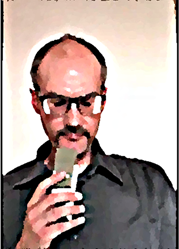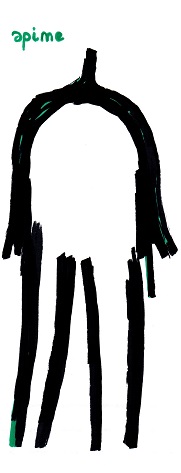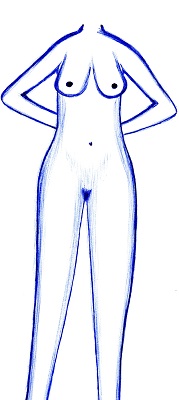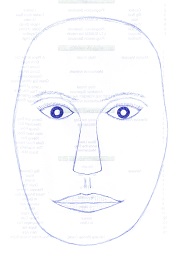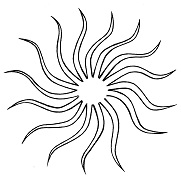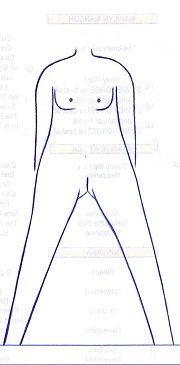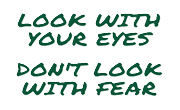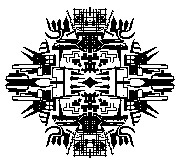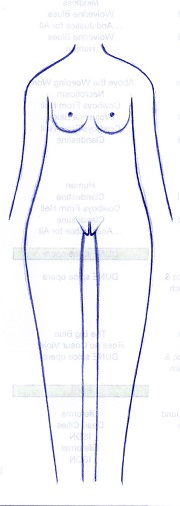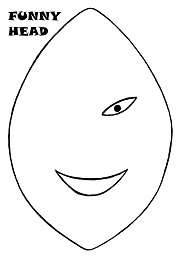|
I've been a postman for 25 years. During those 25 years I always had a hard time keeping this in mind throughout each day. I always felt like my mind was the only source providing the energy to remember the life-death opposition that this writing is about. I always considered this as a part of the foundation of my faith. My mind was surely not the only source providing the energy to constantly keep that in mind, but it felt like that quite often anyway. A lot of humans don't necessarily object to the idea of doing interesting manifestations of the artistic kind, and yet they always think: the time is not now. But time is a moment. Time is always now. You understand that, don't you? For most people being creative is never going to happen, that's a simple observation, but with a huge consequence. Not living, not doing the things that we should do or that we're called to do, and the lack of being aware of that simple observation, and the lack of understanding the meaning of it has severe consequences.
When for some reason people think about the meaning of the word guilt, I think most people make this common mistake: the first thing they should think about when thinking about the meaning of the word guilt is this: did we or did we not live, did we or did we not do the things that we should do and that we're called to do? That's the first thing they should think about, but it's not the first thing they think about. This mistake, I should say my opinion about this mistake, is a dissonant opinion. This mistake, and my opinion about this mistake, are two dissonant opinions about the base of right and wrong. It's a common mistake that concerns the starting point that we use as foundation to make our judgements about what's right and what's wrong. If we pronounce the forgiver, it sounds a lot like thief or giver. Thieves steal, and givers give. This is something that ought to be taken into account. This is inevitably an important element that should always be present at the base of the concept right or wrong, innocence or guilt. So the most common mistake when the concept right or wrong, innocence or guilt comes into their mind is: "What did I do?" when it's about them, or: "What did they do?" when it's about other people. That's thinking from the point of view of a thief. They should think: "What did I not do?" or "What did they not do?" Use a giver's starting point if you want to be forgiven. Remember: the forgiver, thief or giver. If you could be aware of how tough the guilt is that you will have to face when you neglect this life-death opposition. Remember: do the things you've got to do today, not tomorrow. So don't you think it's a better point of view to think that we can do a lot of things that make life better and bring us back to (or closer to) a state of innocence, rather than to think that you were innocent anyway, and since you didn't do anything wrong anyway you are rightfully staying where you are, because if there's any reason why you didn't mess up it's because you are wise and kind, and other people messed up because they're not. It's the common point of view. But I still think it's the point of view of a thief. That's my dissonant opinion, my giver's perspective. Of course I'm getting a little more into detail. Don't you think it's a better point of view to think that we can do a lot of things that make life better and bring us back to (or closer to) a state of innocence, ... Does this mean we think that we make no mistakes? No, that's not what it means. It means we acknowledge that we make mistakes every day, and we're trying to improve ourselves. We don't tend to pull up a facade to hide the mistakes, which makes me believe we raise awareness about mistakes (including point of views, details, and context). What about the people that are wise and kind, and think that they were innocent anyway, and didn't do anything wrong anyway? They are rightfully staying where they are, so to speak. So where is this place where they're at? I don't believe it's an innocent place, nor do I believe they're innocent people. But these ideas are not conclusive. These ideas don't explain why I think it's not an innocent place, nor why they're not innocent people, but I'm getting at it. The innocent place, what about it? I'll tell you what. People who think my starting point, the giver's point of view, is the right one, what's the place that they are from? Where are they at? Zoom in on the meaning of the word giving. Are we the only source providing the energy to give what we give? No, giving doesn't mean that the one that gives is the source that provided the energy which produced the gift. It means that we have taken part in the creative process to make the things that me made, and it means that there are energies and people that gave us energy in all kinds of forms, and we received that, and after we received it, we can pass it on. On the downside, and this is important, because it changes the whole perspective on the starting-point theory, if I may call it that way, is the fact that we missed out on a lot of things, energies, sources providing energy and whatnot. The misconception here is: the lack of understanding about the meaning of being versus the meaning of possessing (having). When people say: "I am ..." (as part of a whole sentence), we should understand, almost like a reflex, that it actually means: I have, or I possess. When people say: "I am", we should understand, almost like a reflex, that the positive idea of being is an idea that was programmed into the people's minds, but in reality it equals: I have, I possess. They won't say "I have", or "I possess" though, because the people's minds were programmed to think of having and possessing as negative ideas.
Now let me go back to the life-death opposition, what I think we should do in order to be forgiven by the forgiver, the concept of thief or giver. This is how I laid out the base of this principle earlier in the text: Don't you think it's a better point of view to think that we can do a lot of things that make life better and bring us back to (or closer to) a state of innocence, rather than to think that you were innocent anyway, and since you didn't do anything wrong anyway you are rightfully staying where you are, because if there's any reason why you didn't mess up it's because you are wise and kind, and other people messed up because they're not? What's the last part of the principle? The first part is the giver's point of view, the second (last) part is the thief's point of view. Now, what does the thief's point of view come down to? It comes down to BEING. It comes down to this: they say they didn't mess up because they are wise and kind, and other people messed up because they're not. They are this and that, and other people aren't, that's about what we are, that's what it comes down to. It's the common point of view to reject the idea that being wise and kind is about having, about possessing, the common idea is that being wise and kind is only and solely being, and nothing else. I have a dissonant opinion. I believe there are certain energies, entities and people who gave them a sufficient amount of energy and enough height at young age, which made them able to reach an amount of comfort that led to their capacity to pull up a mask and act like they're giving, generous, kind and wise beings. I think the main reason why people are having trouble understanding this truth is because the nature of inequality can be cruel, which is why they just ignore it. Ignoring the nature of inequality is something that narrows the possibility of understanding this down to zero. Even if it's not a common point of view, I believe it will become very clear overtime. It's not because you are wise and kind that you didn't mess up, again, that's not true. It's not because other people don't possess these qualities that they messed up, again, that's not true. Being wise and kind is your mask, the facade that you're pulling up whenever people are around. You were rather possessing energy and comfort, than being. You possess, you have, and you steal other people's energy, I don't know how you keep up managing not calling that messing up but you do. But the other people, the people whose energy you've stolen, don't have, don't possess, and yet they give, they keep giving. They messed up, but not because they're not wise, not because they're not kind, but because you stole from them. If they possess a rock, you suck the water out of their rock, because you suck the last drop of water out of their life, until they're dryer than a stone. Whether we think people are givers or thieves, innocent or guilty, it depends on conditions, and we're making assumptions. We can't rely on being, because when we analyse the meaning of being, it means having, possessing. And we can't rely on having either, because we have come to a conclusion that we don't know the source providing the energy to have what we have, we merely receive. We have to accept that we don't know where all the things come from. What we do know is that stones don't contain water, and people can't survive without water. And thus, not stealing water from the people who need it most is a part of the task of your life, a part of your responsibility.
When I was young Isabel was always handing out presents, and I always received the biggest box. I knew what was in the box already, it was empty, it always was. But the other people always received a tiny box. They were always like: Why he always gets the big box, my box is always tiny, and they were always envious, and they would always treat me like the one that gets the big box, no one gave me anything for the rest of my life. They didn't know my box was empty, we always had to wait until we were home to open it. But I knew it was empty. Every time I received the big box, I saw the other people watching me, and being envious at me, and I knew I was screwed already. And I was triggered already. And there was always some wise guy coming over and say: You always stay so calm, you're a relaxed person, how do you manage to stay so calm? I always knew a way to explain I was only calm on the outside, but on the inside I was exploding. We stay calm on the outside because we have no choice, that's what everyone expects, but I'm getting off topic. That's the only thing they've ever achieved with such stupid comments: getting us off our topic. Isabel on the other hand felt like a queen, she used her ritual of handing out presents to create her own image of most unselfish and most generous person. Not only did I know right away, when I received my box, that the other people were envious of me because their box was tiny and mine was big, but I also knew Isabel felt like a queen because she was the most "unselfish" and "generous" person, so I was triggered not once, but twice. I received a lot of presents, oh yeah I received a lot of presents. You screwed me and you had a lot of fun doing that. You've taken the meaning of the word deceitful to another level. It's all about image. But what is it gonna cost? I know I'm gonna get paid anyway.
We have to accept that we don't know where all the things come from. We can rely on the fact that we do it. Yes, we do it, and we're doing things, all sort of things. We have to accept that we don't even know the details of where the conception of living organisms come from. Even the highest priest, even the wisest scientist has to admit, and has to recognize that he doesn't know the details of where the conception of living organisms come from. We all have to admit, and accept the fact that we don't know it. So do it. Rely on doing what you do, rely on doing the things that you do. Do what you can do, to the best of your capacity, and do it today, not tomorrow.
|


